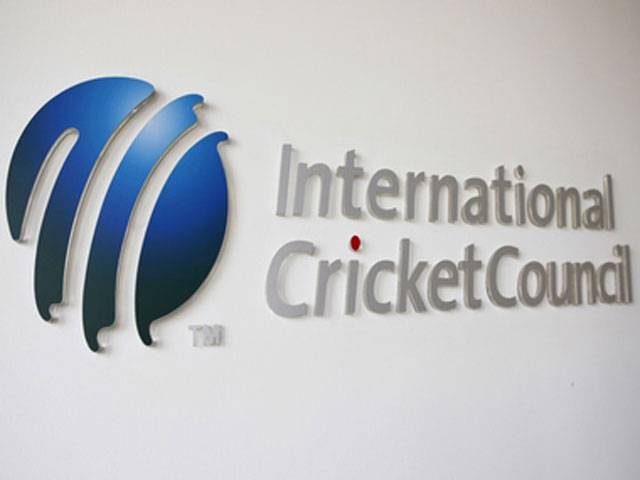LONDON - For much of its history the International Cricket Council (ICC) was unable to do anything without the approval of England and Australia, the two original Test nations.
So the announcement from the ICC's headquarters in Dubai on Wednesday that it had agreed in principle to be effectively run by India, England and Australia had a familiar ring to it. Plans to bolster the position of the 'Big Three' within the ICC include the formation of a new five-man executive committee, with three seats reserved for the Board of Control for Cricket in India (BCCI), the England and Wales Cricket Board (ECB) and Cricket Australia (CA). The BCCI now generates 80 percent of world cricket's wealth and the only way most other boards remain financially afloat is from the colossal television rights they receive from a tour by India.
Given that, greater BCCI influence in the running of the ICC was all but inevitable. Almost as understandable was the BCCI's decision to form links with CA and the ECB, the only other major boards to consistently turn a profit. Prior to this week's two-day ICC board meeting in Dubai, a leaked 'position paper' from the 'Big Three' suggested they be spared relegation in any new two-division Test set-up because of their commercial importance.
But come a statement released after the first day of talks on Tuesday, there was no mention of promotion and relegation, with the ICC declaring there would be "participation based on meritocracy; no immunity to any country, and no change to membership status". That promotion and relegation was conceded by the 'Big Three' suggests it was always something to be given away in return for acceptance of more fundamental points. That appears to be what has happened with strugglers Bangladesh, whose Test status has been repeatedly called into question on the back of a string of defeats.
With major constitutional changes to the running of the ICC requiring a three-fourths majority -- ie eight of the 10 leading nations -- it now seems the 'Big Three' are one vote away from getting support for their revamp plan. West Indies, who forecast they would receive a hundred percent increase in revenue as a result of the changes, and New Zealand, both appear to be onside. That leaves the 'Big Three' needing to win over just one of South Africa, Pakistan and Sri Lanka, the three most vocal opponents of the leaked plan, when the ICC reconvenes for another meeting next month.
On Tuesday, the ICC trumpeted "unanimous support" for the principles behind the revamp, only for a Sri Lankan source to tell AFP: "As far as Sri Lanka is concerned, there was no unanimity on this." The end of the Future Tours programme announced on Tuesday and a return to 'bilateral tours' has raised concerns that weaker nations could suffer from a lack of competitive cricket. But New Zealand Cricket's Martin Snedden told the country's Radio LiveSport: "There was a lot of speculation that we would get some crumbs from the big guys and just end up playing mainly the small guys.
"That's not going to happen. We've locked in good commitments from Australia, England and India through that 10-year period (to 2023)." On Tuesday saw current ICC chief executive David Richardson proclaimed: "I am looking forward to bringing to fruition some of the principles that have been proposed and accepted".
That brought a mocking response from former England captain Michael Atherton who, writing in The Times, declared the former South Africa wicketkeeper a "chief executive without a shred of executive power, and chief executive of a body with no function".
There is no guarantee the 'Big Three' will remain a settled unit, given the political and even racial tensions that have often seen India involved in bitter arguments with England and Australia. But an alliance based on cold, hard cash may last for a while yet given that the enduring lesson of modern sport is 'follow the money'.
Friday, April 19, 2024
ICC set to go back to the future

Caption: ICC set to go back to the future
KP minister briefed on issues about sales tax on services
April 19, 2024
64th anniversary of freedom fighter Mirzali Khan marked
April 19, 2024
893,000 students appear in SSC exams in KP
April 19, 2024
Saudi govt shows interest to fund two road projects
April 19, 2024
Moot notes diabetes, blood pressure on the rise among youth
April 19, 2024
Hepatitis Challenge
April 18, 2024
IMF Predictions
April 18, 2024
Wheat War
April 18, 2024
Rail Revival
April 17, 2024
Addressing Climate Change
April 17, 2024
Justice denied
April 18, 2024
AI dilemmas unveiled
April 18, 2024
Tax tangle
April 18, 2024
Workforce inequality
April 17, 2024
New partnerships
April 17, 2024
ePaper - Nawaiwaqt
Advertisement
Nawaiwaqt Group | Copyright © 2024





